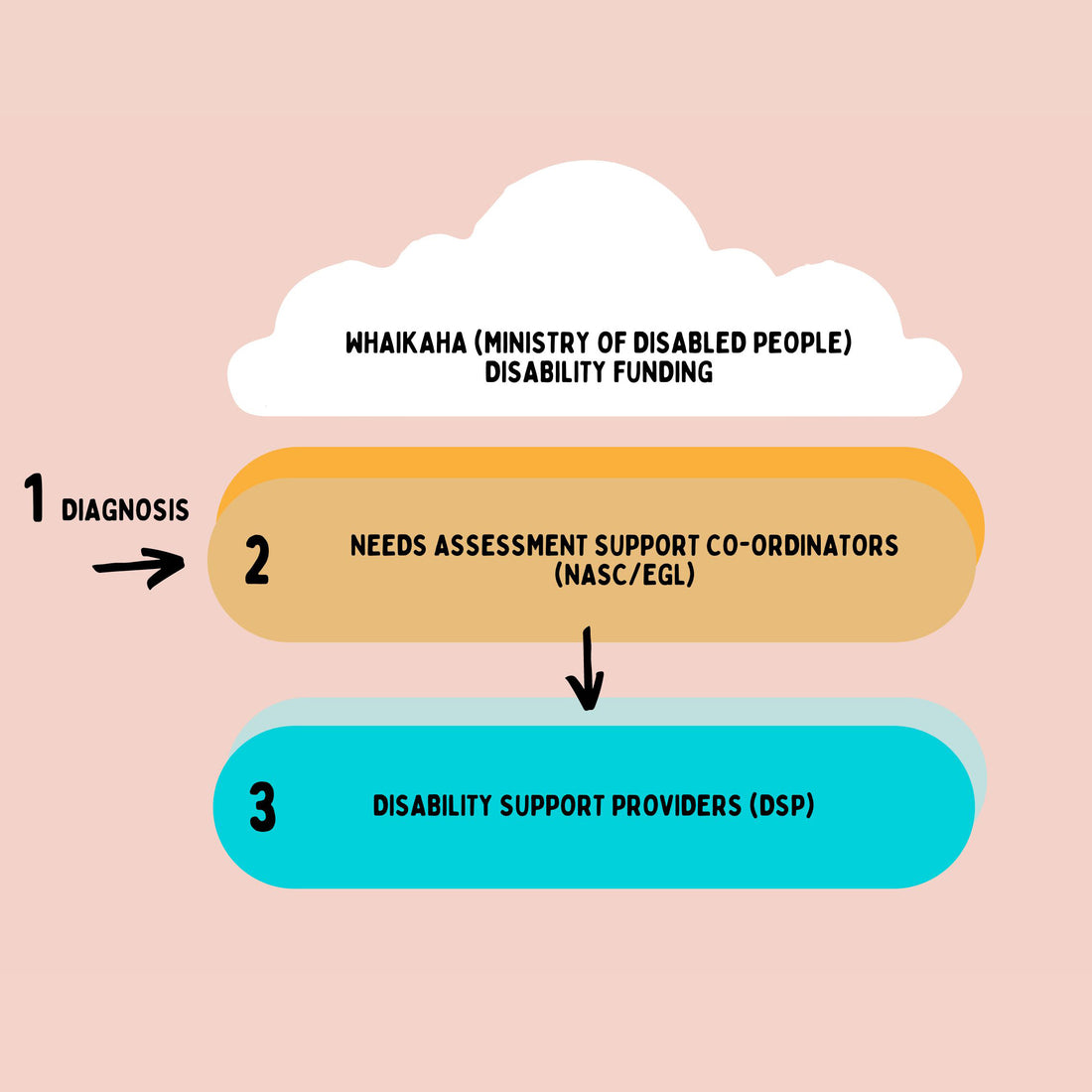OK, you and your whanau are a few months down the journey towards obtaining disability support and funding. A specialist has given you or your child a diagnosis for a disability condition that could be physical, intellectual, Autism, sensory or a combination of these conditions. Its time to book in a Needs Assessment.
Needs Assessors, what do they do? (NASC or EGL- depending on your region)
Depending on the region you live in NZ will determine whether you are assessed through the EGL approach organisations, or through NASC needs assessment organisations. (See EGL or NASC-which region are you in?)
What is a NASC?? Why are there so many Acronyms!! It stands for "Needs Assessment and Service Co-Ordination" services.
Your GP, Specialist, or organisations like Autism NZ, Autism Support Network or Cerebral Palsy Society (CPS) can refer you to a NASC (or EGL) in your area, or if in Auckland, you might want to try Taikura Trust, they are a great source of advice and information (they're also a NASC).
Needs Assessment service providers (NASC or EGL) are independent bodies that assess the needs of the client, and help facilitate and co-ordinate your disability funding application and evaluate and approve the individualised funding. The Needs assessor will then provide recommendations on a proposed package of care on the individuals needs that encourages people with disabilities the freedom, independence and personal financial decision making related to their Individualised funding, for positive life outcomes.
Your NASC or EGL representative can offer support options, including Individualised Funding, based on their needs assessment.
Once your proposed package of care is approved by your Needs assessor they can refer you to a Support Services Host Provider in your area.
Prepare for your Needs Assessment Appointment
-Knowledge is power!

Well done! You've a diagnosis, and thanks to the previous steps taken will have a much richer understanding of you or your child's condition.
1) Keep your diary going.
The journey isn't over yet. In order to achieve the most successful outcome from your Needs Assessment we recommend to keep on with your Diary, documenting you or your child's routines, moods, challenges and behaviours in order to provide the strongest evidence and information to support your assessment.
2) Record 'Needs related' expenses
You will likely already be spending your money on needs related items or services directly related to you or childs condition. Record the purchases with the date and amount. Take photos of your receipts. This is further evidence to validate your support funding needs for the assessment- It'll get you in a good habit if/when you receive funding in future.
3) Ask for a Needs Assessment template to help prepare you for the appointment.
Read and fill it out for yourself- Ask yourself 'What are these questions asking?' "How does it relate to my situation?" "What evidence can use to support my answers?" You should have a evidence based history to reflect on in your Diary and your record of purchases directly related to you or your childs needs.
So roughly speaking, how does needs assessors evaluate and allocate the amount of funding you will recieve?

Your needs as evaluated by the assessment will determine the amount of funding you will recieve. This is broken down into small segments of individual needs criteria that contribute to your funding proposed package of care. So imagine NASC or EGL had funding criteria 'points' for various types of needs, and each of these criteria points was allocated (or not allocated) to you, based on the 'level of support' for that type of need in your life, so for example, 'transport needs' - are you able to take public buses, or do you require disability wheelchair services for transport? 'Fitness' - are you able to self manage your fitness based therapy, or do you require support staff to assist with your therapy? Based on the needs assessment, you may not meet the criteria for some of these 'points', or you may meet the criteria, but the amount allocated for each of these criteria points may be determined by the expense and your assessed level of need. Combine your funding allocations, and you have your funding proposed package of care.


Your Needs Assessor refers you to a Disability Support Provider (DSP)...What are they?
Support service Host Providers are Organisations that are contracted to Whaikaha (Min of Disabled People) to provide and help you manage your support service needs (based on your package of care set by your NASC) and facilitate your individualised funding. Disability support services provide home Care and Services, Respite care, Support with employment, advocacy on your behalf, Life goal setting and assisting in control of Individualised funding self management.
They act as the enablers to the principles of Enabling Good Lives, as set by Whaikaha and will be your first point of contact for support and advocacy once you have been assigned to them.


